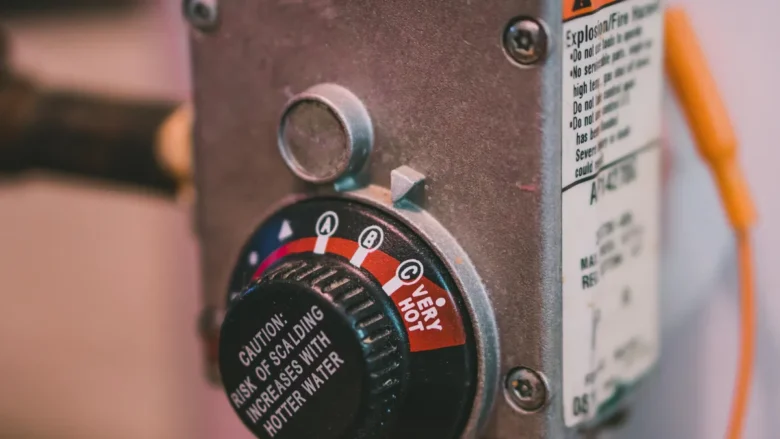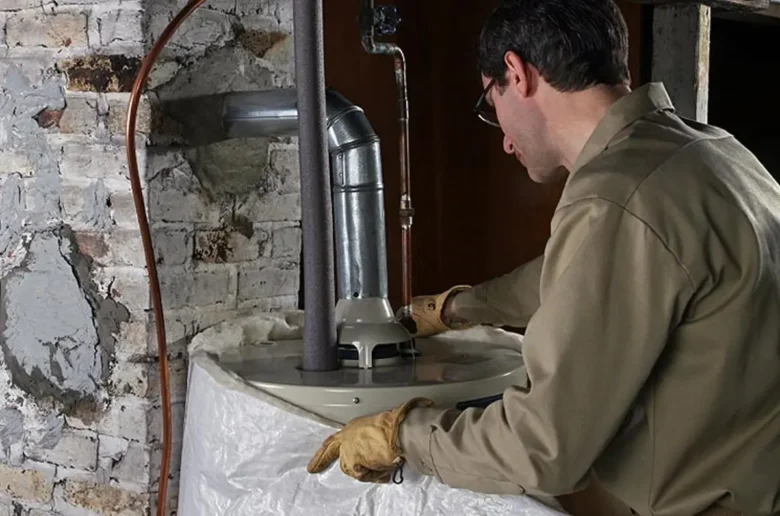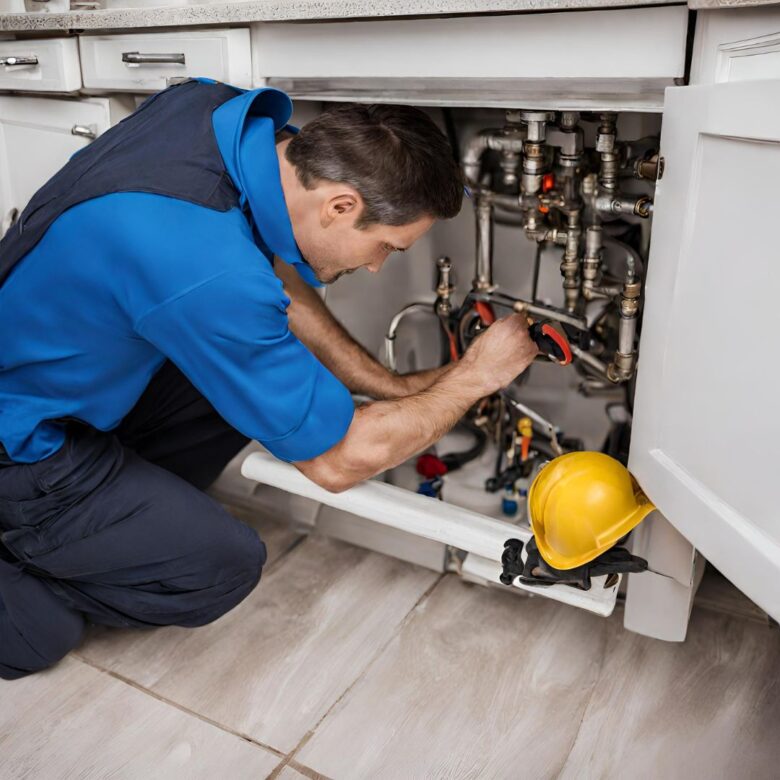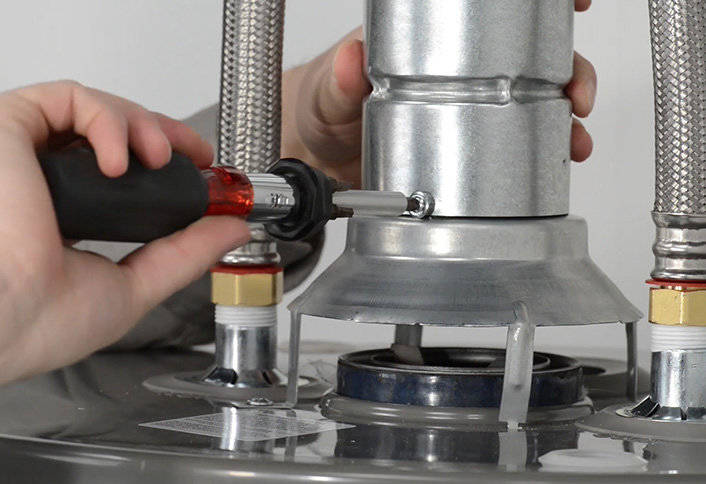Picture this – a chilly morning; all you crave is a warm, comforting shower. Your water heater is crucial in turning this dream into a reality. However, ensuring safety around this essential appliance is just as important as enjoying its benefits. This manual provides essential water heater safety advice that is beneficial for every homeowner to be acquainted with.
Tip 1: Set the Right Temperature

Your water heater can deliver scalding hot water, which can be hazardous. While it may be enticing to increase the temperature during colder seasons, setting the thermostat at or below 120 degrees Fahrenheit is advisable. This practice helps avoid unintentional burns and contributes to energy conservation.
Second Tip: Conduct Regular Leak Checks
Even a minor leak may appear insignificant initially, but it can potentially escalate into significant issues over time. Routinely examine your water heater for indications of leaks, such as puddles or rust. Promptly addressing leaks can prevent water damage and extend the lifespan of your appliance.
Tip 3: Schedule Annual Maintenance
Think of your water heater as a trusty companion that deserves some TLC. Schedule a yearly examination with a certified expert to verify the effective operation of all elements. This proactive approach can catch potential issues before they become major headaches.
Tip 4: Install a Temperature-Pressure Relief Valve
Water heaters can build up pressure; if left unchecked, this can result in a dangerous situation. A temperature-pressure relief valve will release excess pressure, safeguarding your water heater from potential explosions.
Tip 5: Create a Safety Zone
Maintain a clear and uncluttered space around your water heater. Flammable items should be stored away from the appliance to reduce the risk of fires. Creating a safety zone ensures your water heater can do its job without any added hazards.
Tip 6: Familiarize Yourself with the Gas Shut-Off Valve
For individuals using a gas water heater, it is essential to recognize and become acquainted with the gas shut-off valve. In the event of an emergency or the detection of a gas odour, promptly shutting off the gas supply is crucial to averting accidents and maintaining the safety of your residence.
Tip 7: Insulate Your Water Heater

Help it work more efficiently by insulating it. This conserves energy and reduces heat loss, allowing your appliance to maintain the desired temperature without overworking. Additionally, it’s a cost-effective measure that saves energy over time.
Tip 8: Know the Signs of Trouble
Familiarize yourself with the common signs of water heater issues, such as strange noises, discoloured water, or inconsistent heating. Being proactive and addressing these signs early on can prevent minor glitches from turning into major malfunctions, saving you time and money.
Tip 9: Call a Professional for Repairs

While a DIY spirit is commendable, it’s crucial to call in a professional, such as a Plumbing expert or emergency plumber, for repairs when it comes to water heaters. Addressing intricate issues without the required expertise can result in more substantial problems and may even jeopardize your safety.
Tip 10: Keep Emergency Contacts Handy
In case of a sudden malfunction or a water heater emergency, having the contact information of a reliable plumber or 24/7 Emergency plumbing service at your fingertips is invaluable. A swift response can prevent further damage and promptly restore your home’s comfort.
Risks Associated with Electric Water Heaters
Electric water heaters provide reliable hot water supply in many homes, but they come with their own set of risks. One of the primary risks is electrical shock or fire hazard. Since electric water heaters are directly connected to the electrical supply, any malfunction or water leak can lead to electrical shorts and potential fire hazards. It’s crucial to regularly inspect the electrical components, including the heating element and wiring, for signs of wear, corrosion, or damage.
Another risk is scalding hot water. Electric water heaters can heat water to extremely high temperatures. If the thermostat malfunctions or is set too high, it can result in water that is dangerously hot, leading to burns or injuries. Homeowners should always check and set the thermostat to a safe temperature, typically around 120 degrees Fahrenheit, to prevent scalding accidents.
Additionally, sediment buildup inside the tank can reduce the efficiency of electric water heaters and potentially lead to tank overheating. Regular flushing and maintenance are necessary to prevent sediment buildup and maintain safe operation.
Ensuring Proper Ventilation for Gas Water Heaters

Proper ventilation is paramount when it comes to gas water heaters to mitigate the risk of carbon monoxide poisoning. Incomplete combustion of natural gas can produce carbon monoxide (CO), a colorless, odorless gas that is deadly when inhaled in high concentrations. To prevent CO buildup, gas water heaters must be installed in well-ventilated areas with adequate airflow.
One critical aspect is ensuring the correct venting system. Gas water heaters typically use a flue or vent pipe to expel combustion gases outdoors. Regular inspection and maintenance of the venting system are essential to prevent blockages, leaks, or damage that could lead to CO exposure.
Additionally, homeowners should install carbon monoxide detectors in the vicinity of gas water heaters to provide an early warning in case of CO leaks. These detectors can save lives by alerting occupants to dangerous levels of carbon monoxide and allowing them to evacuate safely.
Conclusion
Incorporating these water heater safety tips is more than just routine maintenance; it’s a commitment to the well-being of your home. By regulating the temperature, checking for leaks, and scheduling regular maintenance, you’re ensuring the longevity of your water heater and mitigating potential risks. Additional steps, like installing a temperature-pressure relief valve and creating a safety zone, add an extra layer of protection against emergencies. Moreover, being vigilant about signs of trouble and promptly seeking professional assistance, whether from a plumber or emergency plumber, shows a proactive approach to addressing issues before they escalate. In the end, a well-maintained water heater provides comfort and contributes to your living space’s overall safety and efficiency. So, as you enjoy the warmth of your showers, rest assured that your commitment to safety echoes throughout your home. Stay warm, stay safe!


